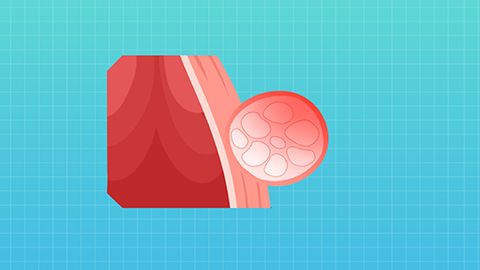What are the symptoms of uterine fibroids?
Generally, uterine fibroids are benign tumors formed by the hyperplasia of uterine smooth muscle tissue. Their symptoms mainly include menstrual abnormalities, abdominal masses, increased vaginal discharge, lower abdominal heaviness and pain, and compressive symptoms. Detailed analysis is as follows:

1. Menstrual abnormalities: Patients often experience increased menstrual flow, with total blood loss per menstrual period clearly exceeding the normal range, and prolonged menstrual duration exceeding 7 days. Some patients may experience irregular vaginal bleeding outside the menstrual period, which is related to the enlarged endometrial surface area and impaired uterine contraction caused by the fibroid.
2. Abdominal mass: When the fibroid grows to a certain size, patients may feel a mass in the lower abdomen. The mass is usually hard, located in the midline of the lower abdomen, and has relatively clear borders. In the morning when the bladder is full, the uterus is pushed upward, making the mass easier to detect, and it gradually enlarges as the fibroid grows.
3. Increased vaginal discharge: Fibroids enlarge the uterine cavity, leading to increased secretion from the endometrial glands, resulting in increased vaginal discharge. If the fibroid becomes infected or necrotic, the discharge may turn purulent with a noticeable odor. Some patients may have blood-tinged discharge, which is associated with mucosal surface damage of the fibroid.
4. Lower abdominal heaviness and pain: Patients may feel persistent heaviness in the lower abdomen, accompanied by dull or aching pain. Symptoms worsen during menstruation or after physical exertion. If the fibroid undergoes torsion of its pedicle or red degeneration, sudden acute abdominal pain occurs, characterized by severe, paroxysmal pain requiring prompt relief.
5. Compressive symptoms: Larger fibroids may compress surrounding organs. Compression of the bladder can cause frequent urination, urgency, and difficulty in urination; compression of the rectum may lead to constipation and pain during defecation; compression of the ureters can cause hydronephrosis and lower back pain. These symptoms vary depending on the location and size of the fibroid.
If the above symptoms occur, especially in women over middle age, timely medical consultation and relevant examinations should be conducted to rule out the possibility of uterine fibroids. Meanwhile, maintaining good lifestyle and dietary habits can help prevent the occurrence and progression of uterine fibroids.





